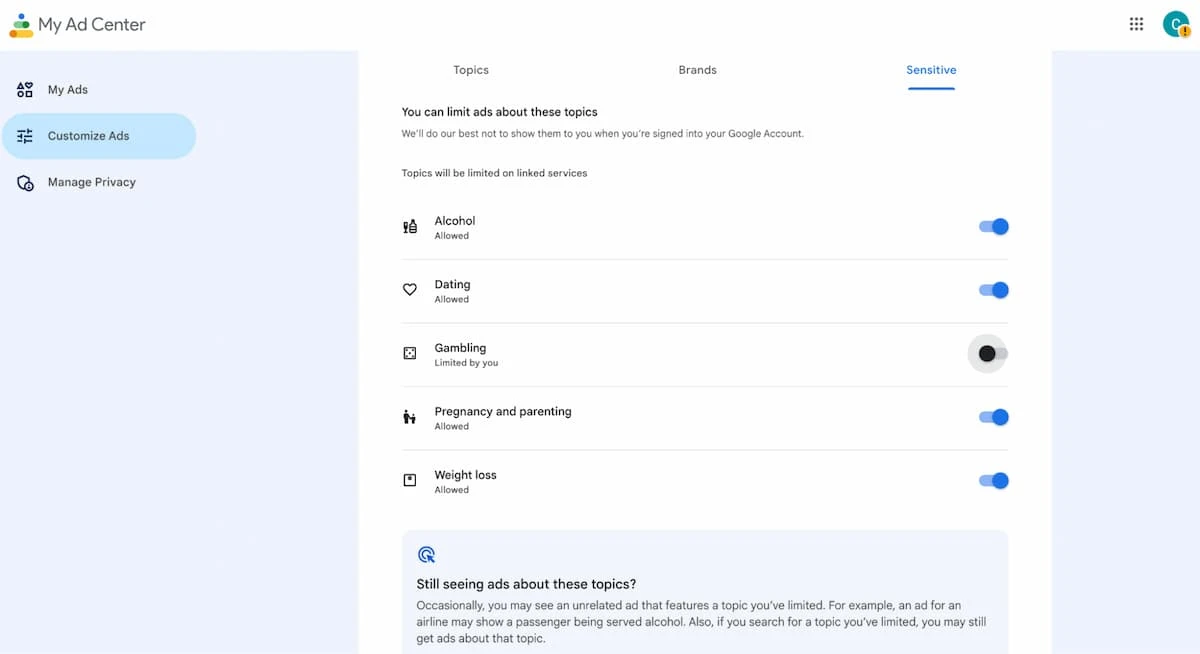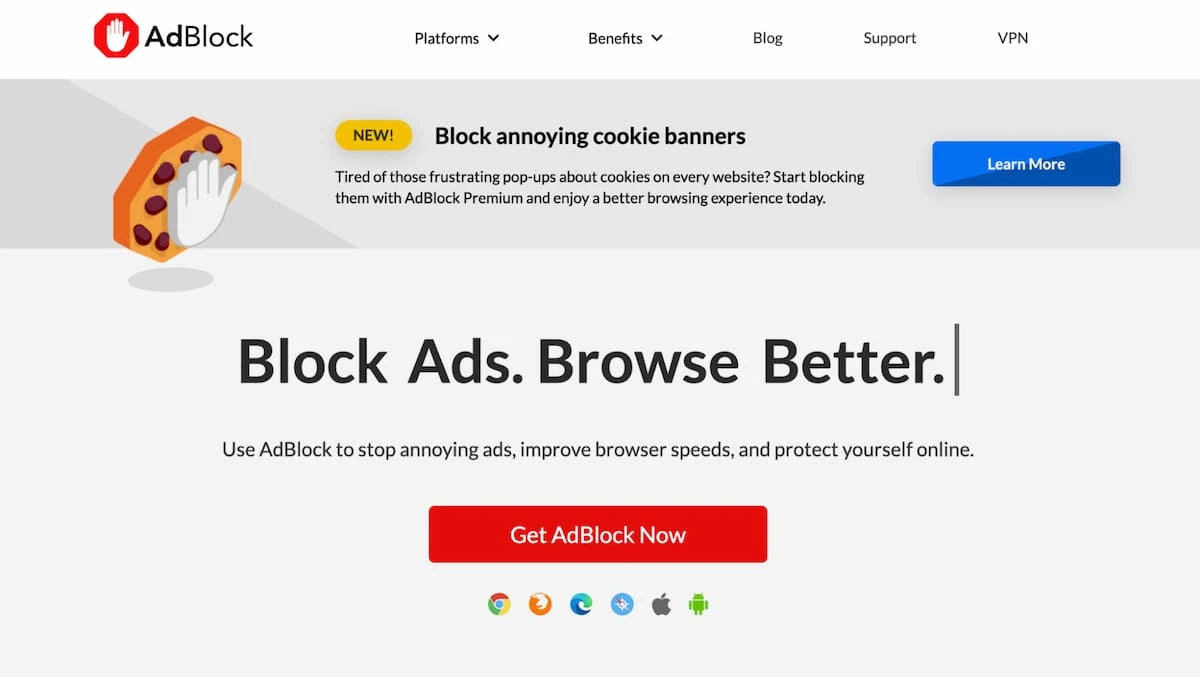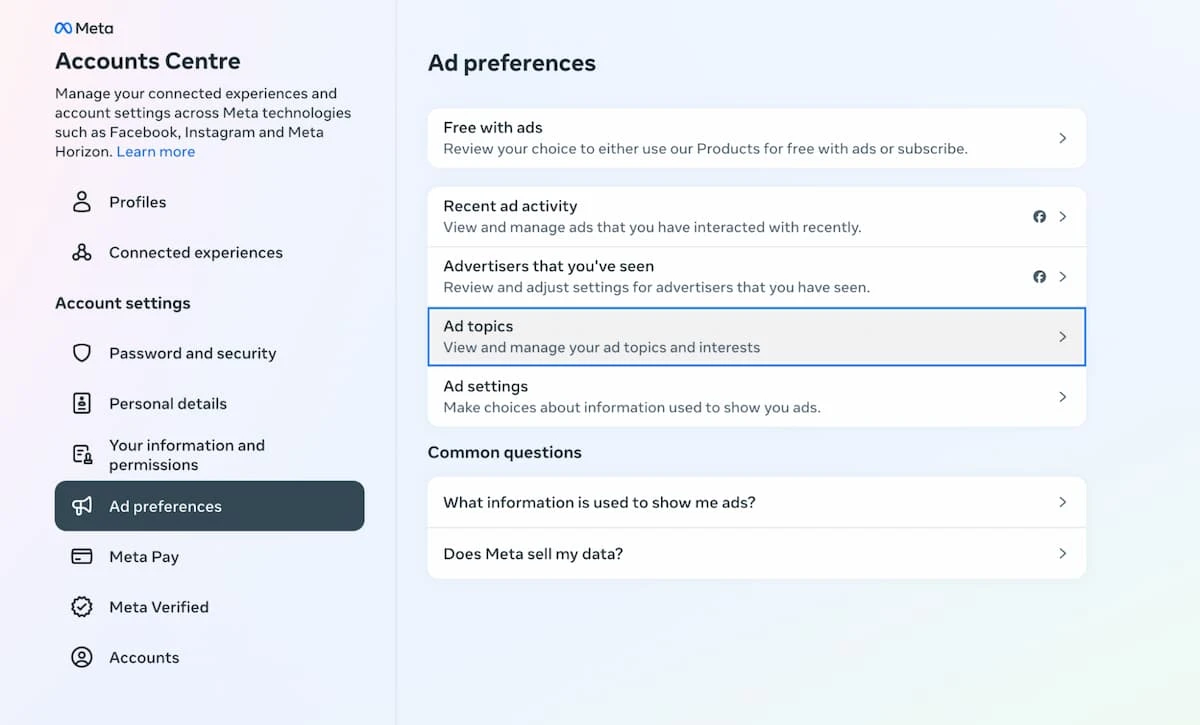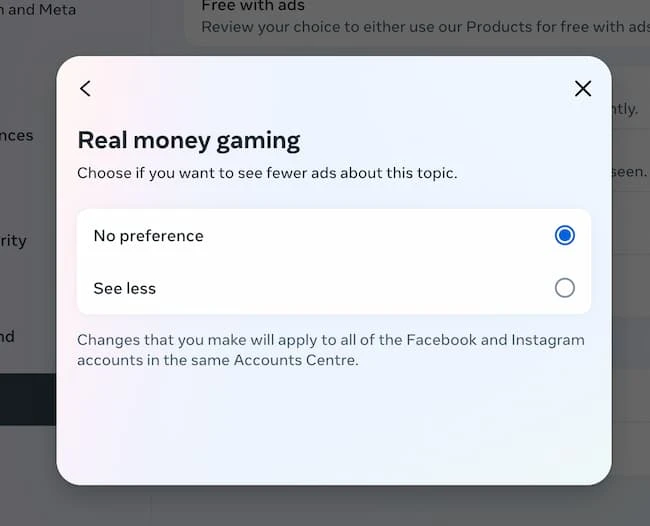What is Responsible Social Gaming?
Responsible social gaming means using social casinos and sweepstakes casinos in a way that is safe, both from a financial and mental health perspective. It means recognizing the risks that come with playing at sweepstakes casinos and taking steps to ensure you are using social sites safely.
To practice responsible social gaming, you need to understand how the games and casino works, the impact excessive or problem gaming can have on players, and the practical tools and strategies you can use to avoid this. We’re covering all of that and more on this page.
Responsible Social Gaming vs Responsible Gambling
From a legal perspective, social casinos are not the same as regular real money casinos. You don’t actually gamble with real money and the site doesn’t require a gambling license to operate. All the games can be played totally free and they are widely available around in the US, including in states that don’t allow legal gambling.
Nevertheless, responsible social gambling looks very similar to responsible gambling at real money casinos, and the same rules and principles apply. Many of the exact same Responsible Gambling Tools used by real money sites are also available at social casinos, like payment limits and self exclusion.
Although playing entirely for free is possible, many players at social casinos choose to purchase Gold Coins, and receive free Sweeps Coins when they do. We need to be realistic about the fact that, for many players, the main aim is to redeem Sweeps Coins for cash prizes. This is materially different from directly using real money to wager, but it is open to exactly the same harms and pitfalls as at regular online casinos.
Any time real money is involved, it’s extremely important to understand your limits and play safely, whether you’re playing at a social casino or a real money casino.
In fact, promoting responsible play at social casinos is arguably even more important, since a casual player might not think it is as relevant or useful as at real money sites. These people are wrong: responsible social gaming is every bit as important to your health and wellbeing as responsible gambling, and should be taken just as seriously.
What is Problem Gaming/Gambling?
Problem gaming or problem gambling is what happens when players are not playing responsibly. The term can be used to describe a range of negative consequences: mental turmoil and anxiety, financial problems, issues with personal relationships and many more. Once you identify gambling a source of any kind of negativity in your life, your gambling has become problematic.
Social Casinos as a Gateway to Real Money Gambling
While social casinos are distinct from real money gambling, they can sometimes act as a gateway to it. Social casinos, often seen as a low-risk, entertaining pastime, mimic the mechanics and excitement of real money gambling without financial stakes. That said, the immersive nature and reward systems can create a false sense of security, potentially desensitizing players to gambling risks.
This transition occurs when players seek heightened excitement or bigger rewards, leading them to explore real money gambling options.
Recognizing this potential progression, it’s vital to practice responsible social gameplay. Players should set clear boundaries, regularly review their gaming habits, and remain aware of time and money spent. By understanding the similarities and maintaining control, players can enjoy social casinos responsibly, minimizing the risk of transitioning to real money gambling in an irresponsible manner.
Responsible Gaming Pledge
Here at Sweepstakescasino.net, we take responsible gaming seriously and we want our readers to be protected. We’ve created the following affirmations to clearly lay out our beliefs about responsible gaming and social casinos. We want our readers to be in no doubt about what we believe, and we want you to make these affirmations part of your gaming habits too.
- Responsible gaming at social casinos is equally as important as responsible gambling at real money casinos.
- The games at social casinos can be addictive. In many cases, they are exactly the same games as at real money casinos. They are designed to provide a dopamine rush when you hit a win, to encourage players to keep spinning the reels.
- Players are at a mathematical disadvantage of winning. This is very simple but very important to understand. All the games at social casinos have a built-in house edge, which you can see for yourself if you open the information section of the games. For slots, the RTP (Return to Player) is around 96%, meaning that for every 100 GC or SC bet, 96 get paid out. This results in a house edge of 4%. Over the long term, you’re guaranteed to lose.
- Playing at sweepstakes casinos is a form of entertainment, not a way to make money. If you are turning to sweepstakes gaming as a way to get money, you’ve got a big problem.
- If you’re not having fun, stop playing. Problem gaming can cause financial problems, anxiety, stress, social problems and other mental health issues. If you start to experience this, you should stop playing.
Warning Signs of Problem Gaming
Problem gaming can sneak up on you. It’s important to check in with yourself regularly, to make sure that your relationship with online gaming is healthy and positive. Social casinos can be addictive and it doesn’t take much to fall into a negative spiral and develop a problematic relationship with your gaming.
Check out some of the telltale signs of problem gaming below. Ask yourself if any of them apply to you. If the answer is yes, you may have a problem.
A Compulsive Desire to Play
This is often the first sign of problem gaming. It’s tricky, because the difference between simply wanting to play and a compulsive desire can be subtle. The latter occurs when you find yourself wanting to play all the time, especially at times when you previously wouldn’t. You may feel anxious or agitated until you open the casino app, and you might struggle to close your laptop or turn off your phone when you know you should.
Losing Other Hobbies and Interests
Social gaming should be part of a healthy and varied lifestyle, including other hobbies, exercise, and time spent with family and friends. If you notice any of these are starting to be affected by your gaming, you’ve got a problem.
Neglecting Responsibilities
Neglecting your responsibilities is one step beyond losing your hobbies. It’s more serious, as it can impact things like your health or the wellbeing of your family. Telltale signs include playing during your work hours, or even trying to squeeze in quick sessions on your break or while traveling. You might put off everyday tasks, like shopping or cleaning the house, in favor of playing online.
Spending More Time or Money Than Intended
As we’re going to get into, setting limits is a huge part of responsible gaming. That can mean a limit for how long you play, how much you spend on Coins, or how much you are comfortable losing. Many social casinos provide tools that let you set these limits, but they may also be simply up to your own resolve. If you find yourself struggling to stick to your limits and going over budget, or editing the settings you have chosen, it’s a problem.
Playing With the Expectation or Requirement of Winning Money
Social casinos are just like real money casinos in that the house always has an advantage, and you won’t be a consistent winner in the long run. If you are turning to a social casino to solve some kind of financial problem, you are kidding yourself and you have a major problem. Think of the money you use to play at social casinos as money already lost, and don’t play with the expectation of winning anything.
Trying to Stop But Not Being Able to
A problem gambler’s route to healing is rarely straightforward. It’s entirely possible to recognize you have a problem, but not knowing or not being able to deal with it. Making a conscious decision to change your relationship with social gaming, and then not following through is a telltale sign that something isn’t right. If you are struggling to stop playing, you probably need to stop even more urgently than you think
Chasing Losses
Similarly, this is a total fallacy. Money (or Gold Coins or Sweeps Coins) that you have lost is gone and there is no strategy that will win it back for you. Every time you spin a slot or get dealt a hand of blackjack, it’s a unique event and what happened before has no bearing. Whatsmore, the chances of winning every one of those unique events is tilted in favor of the casino. Lucky streaks aren’t a thing, and chasing losses (or purchasing more Gold Coins and free Sweeps Coins than you can afford) is a recipe to lose more money.
Obsessing About Gaming and Mental Anxiety
As your problem gets worse, so will your mental health. You might find yourself thinking about gaming all the time and organizing your life around it. You might feel anxious and emotionally erratic, and your emotions and mood might be tied to your gaming habits.
Hiding or Lying About Gaming Habits
A healthy gamer has no reason to ever lie about his or her habits, to family, friends or anybody else. If you find yourself doing this, ask yourself why it’s the case? It suggests there is shame attached to your gaming habits and that you are no longer in control of what you are doing. Concealing how much money you are spending on gaming is another very dangerous sign.
Depression and Serious Mental Anguish
If you have reached this stage, your gambling problem has become very serious and you should seek immediate help.
What to Do if You Think You Have a Problem with Gaming
As you can see from the previous section, there are all kinds of gaming problems, and some are much more serious than others. Some require just a tweak in your habits or mindset so that you can continue playing happily and safely. Others require a much more radical intervention and big change to your habits. And for some people, the necessary course of action is to stop gaming altogether.
In this section, I’m explaining the practical steps you can take if you think your gaming has become problematic. In some cases, social casinos will provide tools or collaborate with players to help them achieve their goals. In others, you may require more serious help, including from medical or iGaming industry professionals. And some are simply healthy habits you can implement on a personal level.
I’m going to start with the easiest steps you can implement, and work up to the more serious interventions.
Take Regular Breaks and Use Reality Check Settings
This is healthy gaming 101. Sitting with bad posture for hours in front of a screen is not good for anyone. Taking breaks to do other activities, going outside for fresh air, even standing up and stretching – all of these are essential components of healthy gaming. Casino Reality Check notifications are a great tool to help with this, which ping you at regular intervals – often every 30 minutes or an hour – to remind you to take a break.
Set Limits for Your Game Time
You should never sit down to play without deciding in advance how long you are going to play for. For many people, it helps to think in 30 minute blocks, or to allot yourself an hour of game time once you’ve finished other important tasks. Problems start to occur when you find yourself flipping open your phone or opening the laptop all the time without really thinking about how long you want to play for. Be accountable and decide on a time limit for each session.
Make a Budget and Set Spending Limits
If you’re spending money on Gold Coins or other purchases on social casinos, you should think of it as money already lost. It’s just like paying for any kind of entertainment product, like going to the movies. Decide how much you are comfortable spending in advance and don’t start making financial decisions on a whim. Casinos provide spending limit tools, which I’m going to get into, which help with this.
Any money you redeem via Sweeps Coin winnings is a bonus, not something you should be chasing.
Don’t Play When You Are Stressed or Anxious
Social casino games are designed to be addictive. They provide little bursts of endorphins when you win and they are a distraction from the realities of life. This is not a good combination with anxiety or stress.
You should only play social casino games when you are in a good frame of mind. Playing when anxious or unhappy leads to making bad decisions, losing sight of your plans, and further negative feelings.
Don’t Play Under the Influence
Likewise, never play under the influence of drugs or alcohol. You lose your inhibitions, your behavior and decision become more erratic and you lose track of time. Alcohol is also a depressant. It affects your mental and physical health in the long term and your mood in the short term. It’s just not a good combination with social gaming.
Take an Extended Break and use Cool Off Tools
If you’re struggling to implement these steps, or you find they are not helping, it’s time to take a longer break. An extended reset and help you re-evaluate your relationship with online gaming or gambling. Maybe you’ll come back with a fresher, healthier perspective. Or, maybe you’ll decide you are better off without it.
Either way, there is absolutely no down side to taking a break. In fact, if the idea of stopping seems especially challenging or unpleasant, you probably need
Stop Playing Permanently and Use Self Exclusion Tools
We’re going to cover this in more detail below, but if you want to remove gaming from your life entirely you can request self-exclusion. This deletes your account and permanently bans you from playing on a site.
Player Account Limits
I’ve already touched on this, but social casinos may provide various tools to help you limit either your time, money or coin losses. Used effectively, these are a great way to keep yourself accountable and manage your gaming habits. Just the simple action of setting a limit is itself an acknowledgement of the importance of playing safely and responsibly.
Some social casinos let you set the limits in your account settings or in the responsible gaming section. Other times, you need to email support to manually get your limits in place.
Gold Coins purchasing limits are ideal for managing your budget and keeping you accountable for how much you spend on your hobby. Time session limits are great for anyone who finds themselves playing compulsively, or struggling to turn off the laptop. Coin spending or loss limits (which temporarily locks your account after you have bet or lost a certain amount of coins) help you to stop chasing losses and stay on track with your planning.
Self-Exclusion
Self-exclusion means voluntarily banning yourself from playing on a site. When we talk about self-exclusion, we normally refer to long periods of time (like a six months or a year), or permanently.
Shorter versions of self-exclusion (like for a few days or a week) are also available, although they often have other names, like a Cool-Off Period.
Self-exclusion is an essential tool for anyone who is really struggling with their online gaming. If you find yourself regularly overspending, or that your life is being seriously negatively affected by your gaming hobby, self-exclusion is a great solution.
It’s a drastic step, since it is irreversible for the duration of the period, once requested. However, this is exactly what makes it such a useful tool for compulsive gamers. Self-exclusion also typically includes withdrawing from all contact with the casino, so you won’t receive marketing emails or other information.
If you want to self exclude from a platform, your first step should be to inform customer support. Reputable social and sweepstakes casinos have very robust self-exclusion policies, and often simply flagging that you want the service is enough to set the ball in motion. Trained professionals at social sites are required to take self-exclusion requests very seriously.
In many cases, you can also request self exclusion in your Account Settings or Player Profile. You will normally be asked for the desired duration and then confirm that you definitely want to continue. It can be achieved in seconds.
Finally, state gaming commissions and consumer protection bodies (like the ones mentioned at the bottom of the page) may also run state-wide self-exclusion programs that include all gaming sites in a state. This service is widely available for real money casinos, but since sweepstakes casinos are in a unique position from a legal perspective, it varies state by state. It’s absolutely worth getting in contact with them, where trained professionals can advise you on your options and help you with the next steps.
What Can Social Gaming Learn From Real Money Gambling RE: Responsible Gambling?
Social gaming can benefit significantly from adopting responsible gambling practices established in the real money gambling industry. One key lesson is the importance of player education. Social casinos should provide comprehensive resources on responsible gaming, including warning signs of problem behavior and practical tips for maintaining control.
Implementing robust account limits, such as daily spending and session time restrictions, can help players manage their gameplay effectively. Additionally, self-exclusion options should be readily available, allowing players to take a break if needed.
Collaborating with help organizations to offer support for those struggling with gaming habits is crucial. By integrating these measures, social gaming platforms can foster a safer and more enjoyable environment, emphasizing player well-being and promoting responsible play.
Help Organizations
There are lots of organizations out there dedicated to helping players who are struggling with problem gaming. You’ll find that these organizations offer support and solutions for both real money gamblers and players at social and sweepstakes casinos.
As we are eager to make clear, many of the same problems arise from problem gaming at sweeps sites as from problem gambling.
Check out a list of help organizations below, all of which provide tips, advice, and practical support for anyone struggling with gaming, or the family or friends of anyone struggling:
- GamCar
- Gamblers Anonymous
- National Council on Problem Gambling
Additionally, every state has a gambling commission which is tasked with overseeing regulated gambling in the state, and promoting responsible gambling. By definition, sweepstakes casinos are not strictly within their jurisdiction, since they legally fall under the definition of sweepstakes contests rather than real money gambling.
Nevertheless, these organizations are a great place to go to learn more about how to play responsibly in the state and discover local support groups and local resources. The list is below:
- Alabama – https://www.alccg.org/
- Alaska – https://dhss.alaska.gov/pages/default.aspx
- Arizona – https://azccg.org/home-page
- Arkansas – https://www.healthy.arkansas.gov/
- California – https://calpg.org/
- Colorado – https://www.problemgamblingcoalitioncolorado.org/problem-gambling-information
- Connecticut – https://ccpg.org/
- Delaware – https://www.deproblemgambling.org/
- Florida – https://gamblinghelp.org/
- Georgia – https://www.georgiagamblinghelp.org/
- Hawaii – https://health.hawaii.gov
- Idaho – https://www.gamingregulation.com/association/united-states/utah/utah-idaho-council-on-problem-gambling/
- Illinois – https://illinoisproblemgambling.org/
- Indiana – https://indianaproblemgambling.org/
- Iowa – https://yourlifeiowa.org/gambling
- Kansas – https://www.krgc.ks.gov/
- Kentucky – https://www.kycpg.org/
- Louisiana – https://ldh.la.gov/page/gambling-when-gambling-is-a-problem
- Maine – https://maineproblemgambling.org/
- Maryland – https://www.mdproblemgambling.com/
- Massachusetts – https://macgh.org/
- Michigan – http://www.michapg.com/
- Minnesota – https://mnapg.org/
- Mississippi – https://www.msgambler.org/
- Missouri – https://www.missouricasinos.org/
- Montana – http://www.mtproblemgambling.org/
- Nebraska – https://problemgambling.nebraska.gov/
- Nevada – https://www.nevadacouncil.org/programs-resources/
- New Hampshire – https://www.nhproblemgambling.org/
- New Jersey – https://800gambler.org/
- New Mexico – https://www.gcb.nm.gov/compulsive-and-problem-gambling/help-is-available/
- New York – https://nyproblemgamblinghelp.org/
- North Carolina – https://www.ncdhhs.gov/divisions/mental-health-developmental-disabilities-and-substance-use-services/nc-problem-gambling-program
- North Dakota – https://www.gamblernd.com/
- Ohio – https://pgnohio.org/resources/resources-for-problem-gamblers.html
- Oklahoma – https://www.oapgg.org/
- Oregon – https://www.oregon.gov/oha/hsd/problem-gambling/pages/index.aspx
- Pennsylvania – https://www.pacouncil.com/helpline/
- Rhode Island – https://www.ricpg.com/
- South Carolina – https://www.daodas.sc.gov/
- South Dakota – https://lottery.sd.gov/responsible-play/
- Tennessee – https://www.tn.gov/behavioral-health/substance-abuse-services/prevention/tennessee-redline.html
- Texas – https://www.gamingregulation.com/association/united-states/texas/texas-council-on-problem-and-compulsive-gambling
- Utah – https://dhhs.utah.gov/
- Vermont – https://problemgambling.vermont.gov/
- Virginia – https://vcpg.net/
- Washington – https://www.hca.wa.gov/free-or-low-cost-health-care/i-need-behavioral-health-support/problem-gambling
- West Virginia – https://wvgra.org/responsible-gaming/
- Wisconsin – https://www.dhs.wisconsin.gov/disease/gambling-disorder.htm
- Wyoming – https://www.wyomingcpg.org/
Checking Playing History
Taking account of your past actions is a great way to keep yourself accountable in the future. With online gaming, it may be that you only notice a harmful pattern or realize that your gaming has become problematic when you look backwards.
For instance, if you aren’t keeping a close eye on how many Gold Coins you purchase, you might only realize that you ended up spending much more than you intended after a couple of weeks or a month, when you check your bank account. Likewise, you may only realize how much time you spend playing when you add up all the hours spent on a sweeps site after a week.
All of this is an important part of self-assessment and being accountable. Playing for an hour a day doesn’t sound too crazy, but seven hours a week might. Or more than 30 hours in a month, which is well over an entire day spent gaming online per month. This is the perspective that monitoring your history can provide.
In many cases, sweeps sites provide the tools to monitor your history. At the very least, there will likely be a record of your coin purchases on site, so that you can easily see how much you have spent and make sure you are staying on budget. This information will likely be in your Account Settings or Profile, or in the Cashier section.
Some casinos provide a log of your time spent on site, but many do not. In the latter case, it’s extremely beneficial to monitor your own session times, especially if you aren’t sticking to specific plan or timetable.
Try to think about how often you play per day, and for how long, and add it all up. Extrapolate that over a week or a month and ask yourself if the result is a healthy amount that you are comfortable with. If not, it might be time for a change.
Tips for Fun Gaming
Playing games at social and sweepstakes casinos should be fun. Here are some quick tips to make sure it stays that way, and your relationship with gaming stays healthy and positive:
- Set a budget for how much you want to spend. Don’t buy Gold Coins on a whim. Use purchase limit tools to help with this.
- Set a timetable for your gaming, like 30 minutes per day. Don’t start playing without a plan for when you will stop.
- Take regular breaks, drink water and get plenty of fresh air.
- Play for fun, not as a way to make money. It is mathematically impossible to make money in the long term from sweepstakes casinos. If it were possible, they wouldn’t stay in business very long.
- Have fun. Online gaming is about having fun. If you feel stressed or anxious as a result of your gaming, or experience any kind of social or financial hardship, you need to re-examine your relationship with the activity. If you stop enjoying yourself, stop playing.
Blocking Gaming Payments
Blocking payment to gaming or gambling websites is a drastic but very effective way to prevent you from spending money compulsively. If you have self-excluded from a site or want to cut gaming out of your life completely, we recommend taking this step too.
The steps you can take vary depending on your chosen payment method. As a rule of thumb, your first step should always be to flag what you want to do with your financial institution. Traditional banks, as well as many other payment services, have trained staff who are used to handling these kinds of requests.
Even non-traditional payment providers like Revolut allow you to easily block gambling transactions, using the Gambling Block feature. You simply need to head to the Security section of your Account and turn it on.
Depending on your payment service, it might be very easy to block payments to companies that are registered as gambling or gaming websites.
Either way, flagging your request will also likely make your bank more alert to your vulnerable condition too, making them more vigilant about strange spending patterns.
Many people choose to use e-wallets like Skrill or MuchBetter to fund their social casino or even real money gambling sites. These services provide an extra layer of security and mean that you don’t need to make payments directly from your bank, and your gaming payments don’t show up on your bank statement.
If you use a service like this, especially if you solely use it for online gaming, it could be a good idea to delete your account to remove yourself from temptation.
Opting Out of Gaming Adverts
Opting out of gaming adverts is a great way to remove yourself from temptation, and to keep your general internet browsing separate from your gaming habits. Unfortunately, it’s not always possible and your ability to do so varies a lot depending on the platform you are using.
With some sites, like YouTube for instance, you can pay for a premium account that removes adverts entirely. If you’re using the regular version however, you can’t avoid advertisements. However, there are some practical steps you can take to avoid triggering content.
Report or Flag Dangerous Content
Any time you are shown an advert that you find upsetting or you just don’t want to see it again, you should check if you have the option to report it, or signal that you don’t like the content. This feature is available on lots of platforms, and it means the advertisers will tailor the type of adverts you receive to your preferences.
Change Your Google Ads Settings
Google allows you to block certain types of adverts you don’t want to see, including gambling adverts. It’s not a total fail safe, but Google works with various websites including YouTube to tailor your preferences. Here’s how you can do it:
- Log into Google and navigate to My Ad Center
- Click “Customize Ads” in the left hand menu
- Click the “Sensitive” tab
- Turn off the “Gambling” option

Use AdBlock or Other Blocking Software
You can install plug-ins on your browser to limit the number of adverts you see in general. It’s not specifically targeted at gambling adverts, but it’s a very effective way to prevent you from seeing them.
If you’re using Google Chrome, you can install AdBlock by heading to getadblock.com and click the red Get AdBlock Bow button. On the next page, click the Add to Chrome. You may need to restart your browser for the change to take effect.

Change Social Media Settings
It is normally not possible to totally remove ads from social media platforms like Facebook or X (Twitter). However, you normally do have control over the type of content you see. This article explains how you limit gambling adverts on various social media sites.
On Meta (the parent company of Facebook and Instagram), you can navigate to the Ad preferences page in your Accounts Centre. Next you can search for specific Ad topics that you want to see less of.


Glossary
- Chasing Losses – The concept of trying to “win-back” money or Coins you have already lost. It is a fallacy.
- Cool-Off Period – Temporarily blocking your account to take a break from playing.
- Gold Coins – One of the tokens used to play games at sweeps sites. They can’t be redeemed for prizes but can be purchased.
- Real Money Casino – Traditional casinos which require a gambling license and let you use real money to gamble. Legally distinct from social and sweepstakes casinos.
- Self-Exclusion – Allows you to permanently ban yourself from a site.
- Social Casino – A site which lets you play casino-style games online for free.
- Sweepstakes Casino – Often used interchangeably with Social Casinos, but more commonly used when referring to playing in Sweepstakes mode using Sweeps Coins.
- Sweeps Coins – The other token used at sweeps sites. Can’t be purchased, only received as a free bonus. Winning SC can be redeemed for cash prizes.
Responsible Social Gameplay FAQ
? What is responsible gaming?
What is responsible gaming?
Responsible gaming means using social casinos and sweepstakes casinos in a way that is safe, both from a financial and mental health perspective
? What is the difference between responsible gaming and responsible gambling?
What is the difference between responsible gaming and responsible gambling?
The two are very similar. Responsible gaming refers to playing safely at social and sweepstakes casinos, rather than real money casinos. The same help organizations, techniques and strategies apply to both.
? How can I set deposit limits?
How can I set deposit limits?
You can set deposit limits in your account settings, or by reaching out to customer support.
? What are the signs of problem gaming?
What are the signs of problem gaming?
Signs of problem gaming include stress or anxiety, a lack of interest in other hobbies, neglecting responsibilities, financial problems connected to gaming, lying to family and friends, and depression.
? How can I self-exclude?
How can I self-exclude?
You can self exclude by reaching out to customer support, or in some cases in your account settings.

